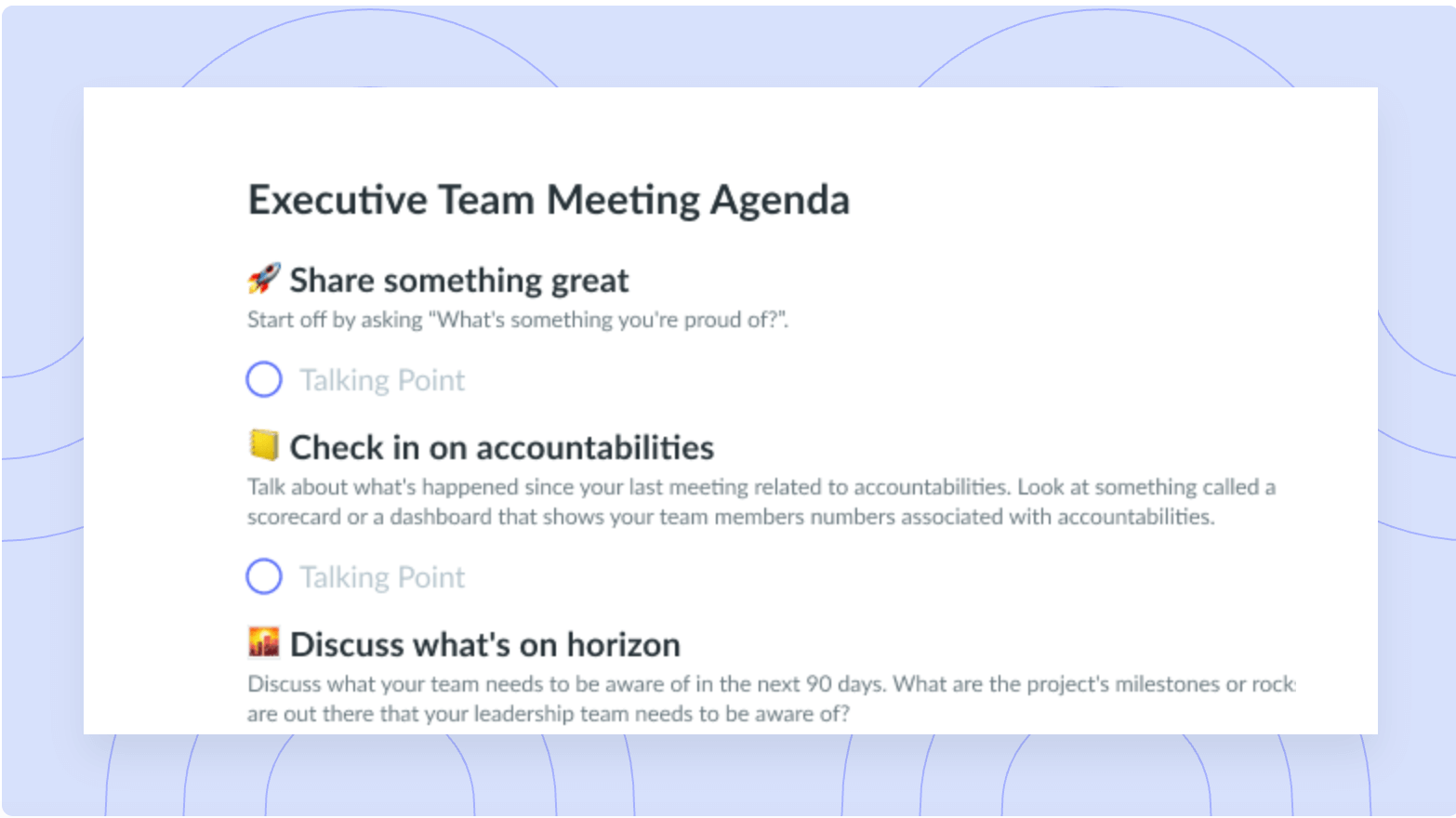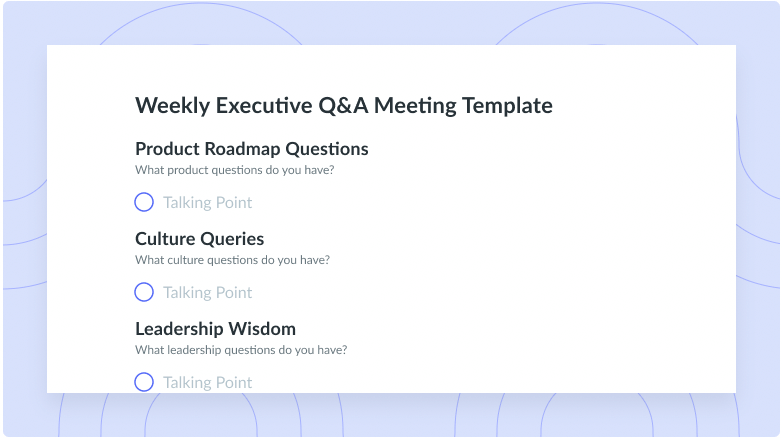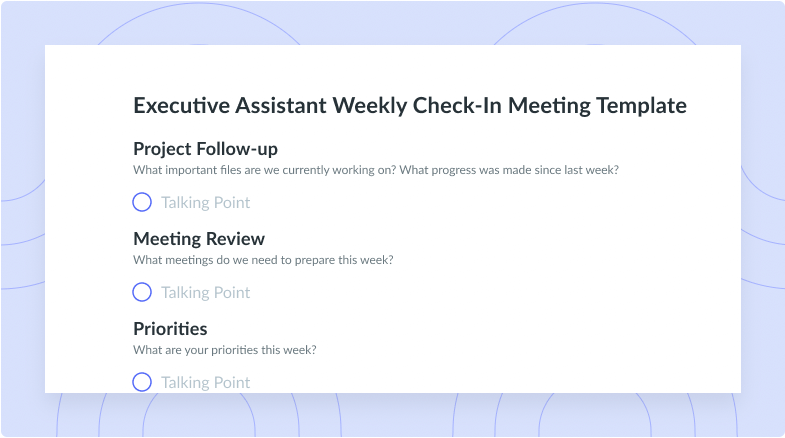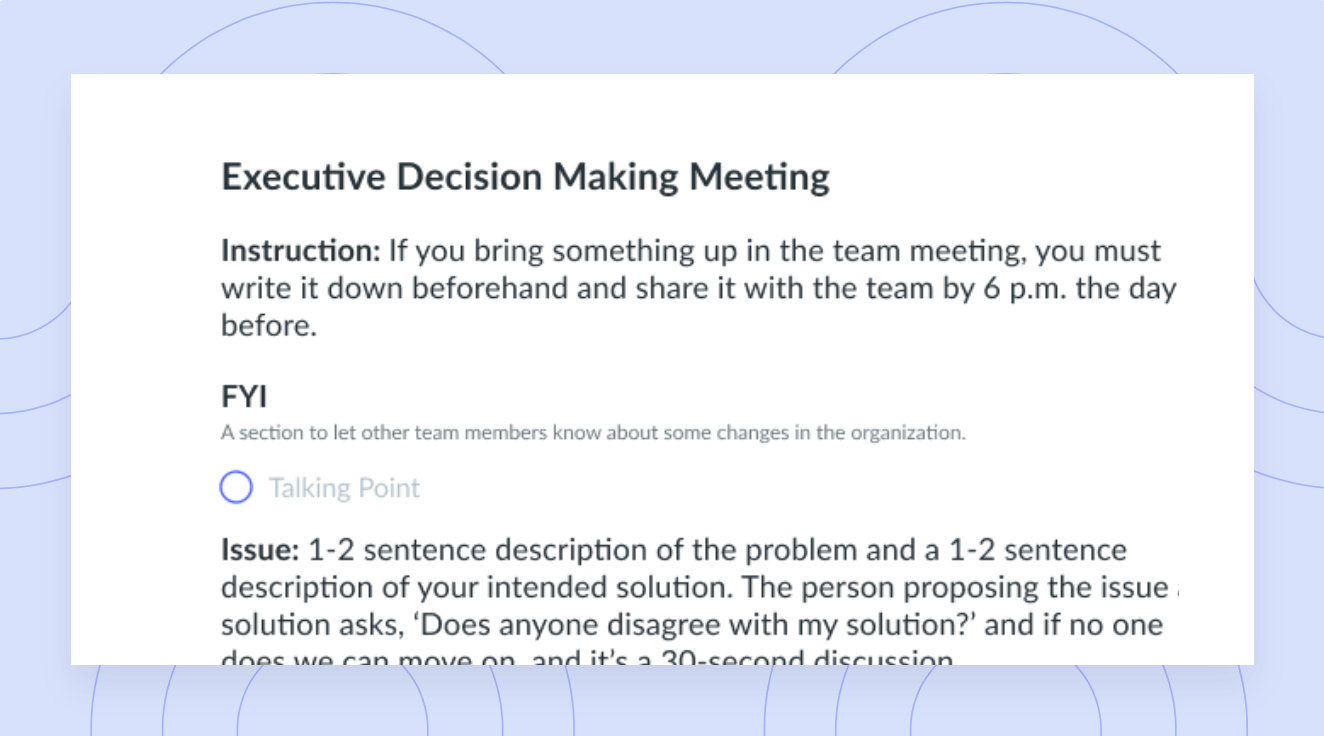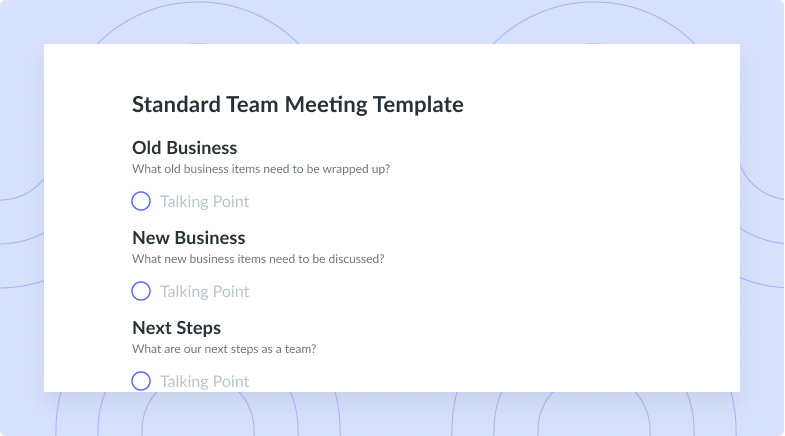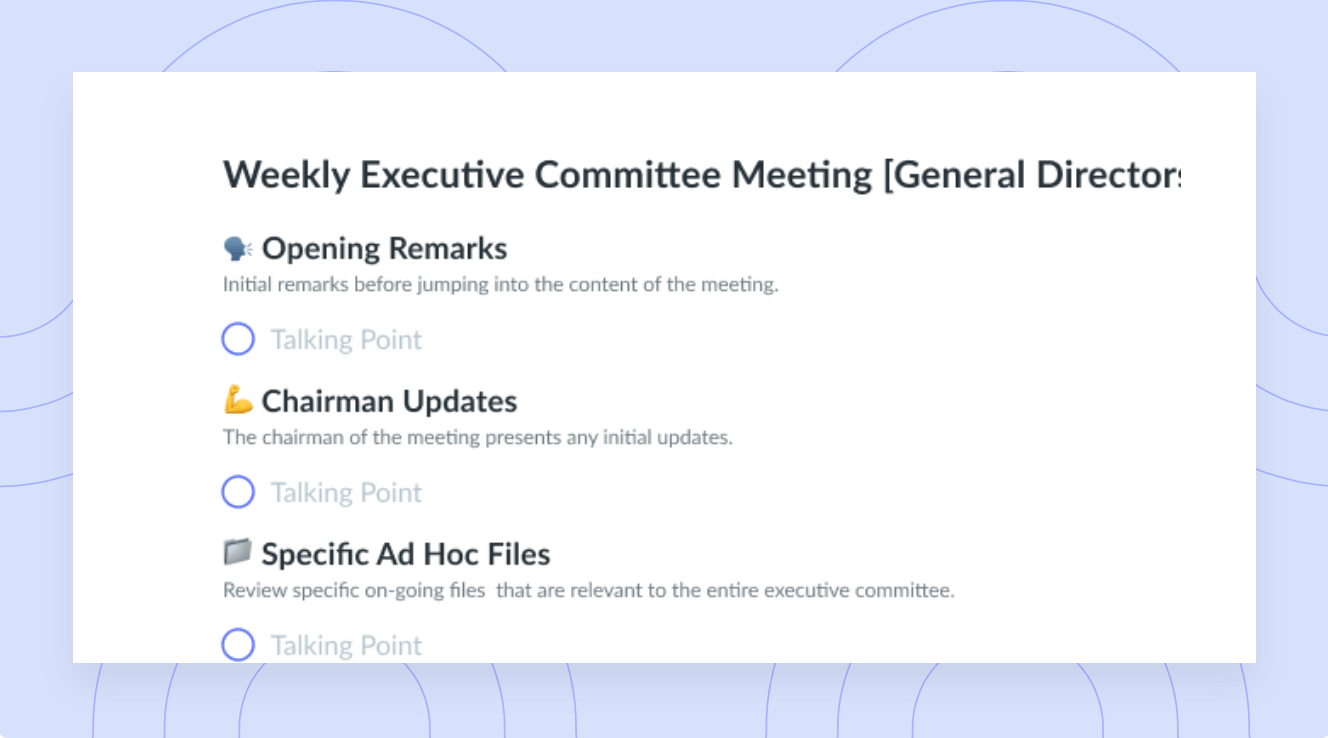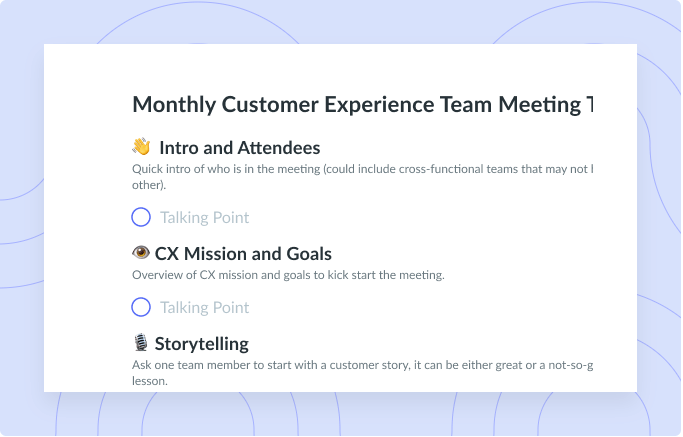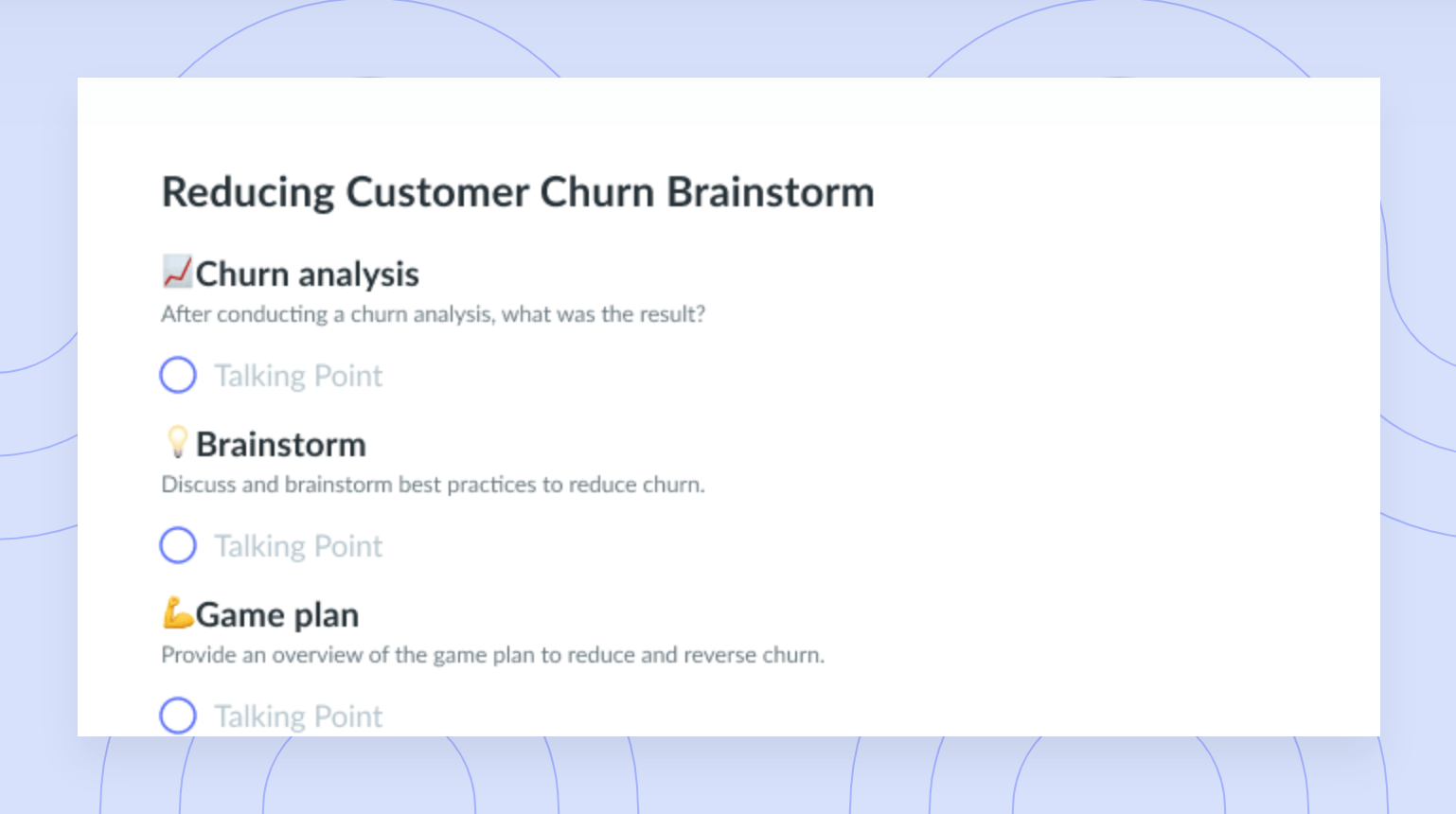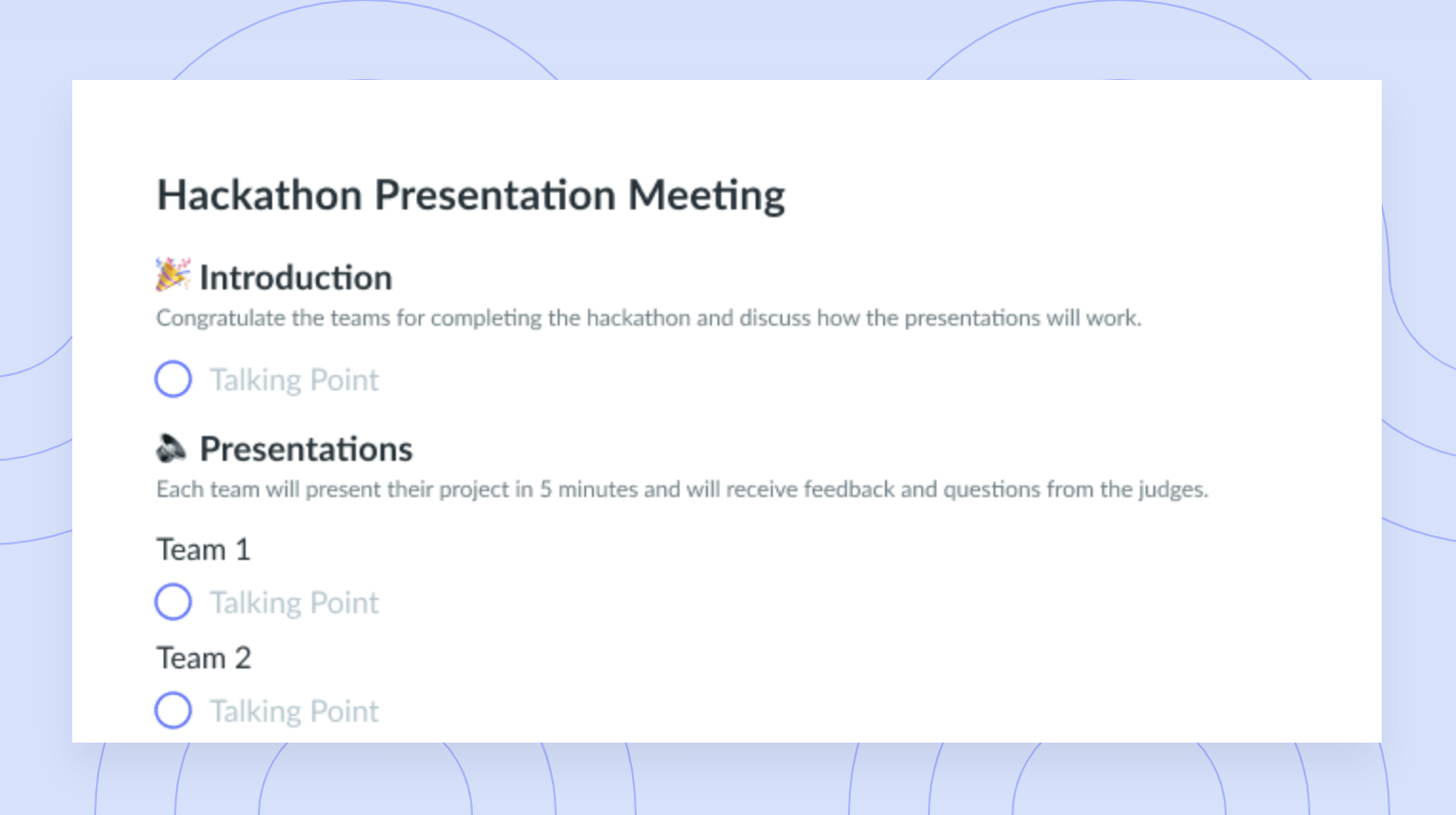Executive Maturity: Having Control Over Your Emotions
Develop executive maturity to manage your emotions, demonstrate sound action, and become a better leader by following Fellow's advice.
Picture this: You arrive at your team meeting ready to present your ideas for a new project to your team. You feel prepared but have lingering nerves because of last time. At your last team meeting, your manager disagreed with a solution that a teammate proposed and proceeded to blame the group for the company’s declining profits. Since then, it feels like everyone has been walking on eggshells around their leader so as not to upset them.
Having an emotionally immature leader can detrimentally impact the whole team. That’s why managers and employees alike can benefit from learning about and developing executive maturity.
Read on to learn what executive maturity is, why the world’s greatest leaders have it, the five levels of emotional control, and six ways to achieve emotional maturity.
- What is executive maturity?
- Why is executive maturity important?
- Levels of emotional control
- 6 ways to reach executive maturity
What is executive maturity?
Executive maturity means demonstrating sound behavior, action, and judgment in the workplace. It’s a skill that is developed through self-awareness and control of one’s emotions. Those with a high degree of executive maturity can effectively manage their emotions and relationships during high-stress periods. Executive maturity means acting as the voice of reason in difficult situations and oftentimes, representing different points of view without bias to reach sound decisions.

Take control of your meetings
Collaborate on meeting notes, foster accountability with action items, and grow with meaningful feedback. Try Fellow today!
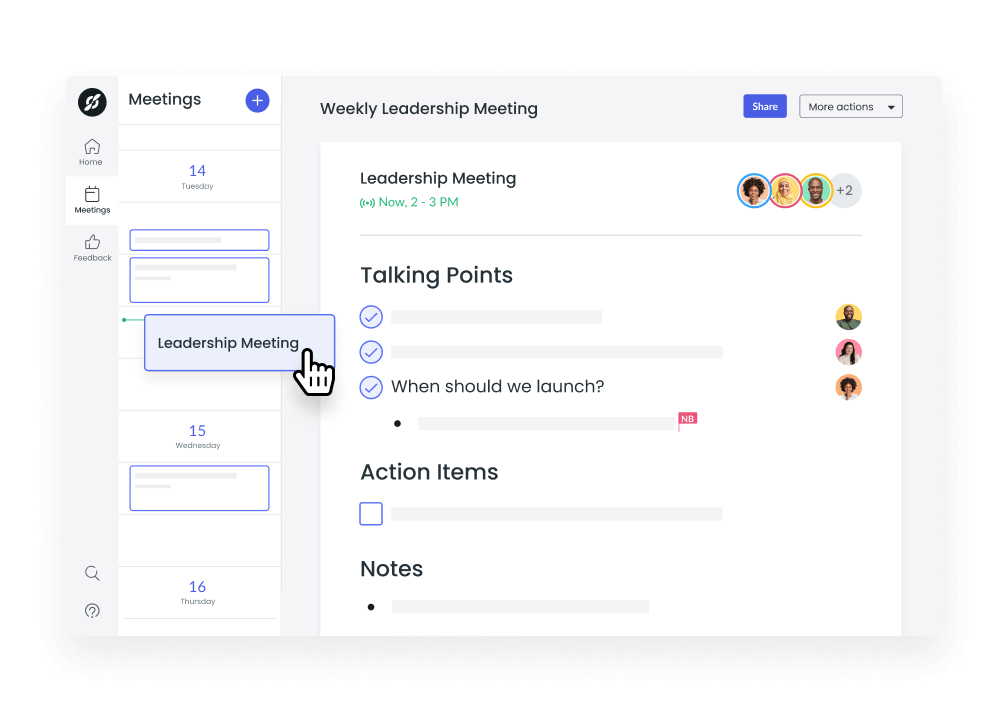
Why is executive maturity important?
Executive maturity is important because it indicates strong leadership. Leaders who exemplify executive maturity are skilled relationship builders, meaning they can bind teams together and lead them to success. Additionally, those with a high degree of executive maturity can recognize their own emotions, understand why they are present, regulate, express, and above all else, use them to their advantage. Executive maturity is a skill needed to increase influence with others as well.
Levels of emotional control that lead to executive maturity
- You have no control over your emotions
- You have unpredictable self-control over your emotions
- You have emotional & self-control not in a constructive manner
- You have emotional & self-control portrayed in a constructive manner
- You have emotional control that is consistent in your actions & behavior
1You have no control over your emotions
In the first level of emotional control, the individual has no control over their emotions. The person may lash out at teammates during difficult circumstances, blame others when things go wrong, call their peer’s names during conflicts, and even engage in reckless behaviors. An example of the first level of emotional control is if someone becomes visibly frustrated, yells, and storms out of a team meeting due to their team’s performance. At this level, individuals are emotionally volatile, and their behaviors have a regular negative effect on others.
2You have unpredictable self-control over your emotions
A person at this level can control their emotions on occasion but is often overwhelmed by them. These individuals are unpredictable and may seem like they have it together for one moment and act completely different moments later. They may be rational and level-headed in certain situations but act as if they are out of control at other times. Someone with unpredictable self-control may tell their team that they’re going to advocate for them during a company-wide meeting but will then ridicule their work when they feel threatened or pressured by others.
3You have both emotional control and self-control over your emotions, but not in a constructive manner
A person at the third level of emotional control will exhibit some emotional control and self-control but isn’t emotionally intelligent enough to use their emotions to act appropriately in certain situations. For example, they may understand the value of hard work but measure everyone and everything against their own set of personal standards. Leaders at this level are often seeking to find their voice and to distinguish themselves as unique.
4You have both emotional control and self-control over your emotions, and this control portrayed in a constructive manner
At the fourth level of emotional control, leaders understand that they can’t rely on themselves alone to make changes. They’re in control of their emotions and understand how to use them to achieve individual and collective goals. At times of high stress, individuals at the fourth level of emotional control are clear in their intentions, communicate well with their peers, and are willing to find common ground. When things don’t go their way, they can brush it off and move forward with ease. For example, if they receive constructive feedback, they will act appropriately in the moment and implement the feedback moving forward. They may, however, stress over the details on their own time.
5You have emotional control that is consistent and demonstrated through your actions and behavior
At the fifth level of emotional control, individuals are always in control of their emotions and further demonstrate this stability through their actions and behaviors. Someone at this level may be so in control that they are capable of moving beyond narrow objectives to achieve higher purposes and dreams. They act appropriately in all situations and are adaptable when things change. Additionally, they are incredibly self-aware and can let go of what is outside of their control to fully move forward and pursue bigger and better things.
6 ways to reach executive maturity
- Understand your reactive vs. proactive emotions
- Practice empathy
- Find trusted people in whom you can confide
- Have clear communication skills
- Know your triggers
- Be a forward thinker
1Understand your reactive vs. proactive emotions
Reactive emotions are intense feelings triggered by external events. These triggers may cause you to act impulsively or do something you later regret. Highly reactive individuals wait until problems arise to address them. On the flip slide, proactive emotions involve acting in advance of future situations and taking control before things take control of you. It’s normal to become stressed when something goes wrong at work, but those with executive maturity can work through difficult emotions to move forward.
2Practice empathy
Those with executive maturity are empathetic. Being an empathetic leader means understanding an employee’s struggles and offering to help. It also means appreciating different points of view and considering different options to develop great solutions. To practice empathy at work, show sincere interest in the needs and hopes of others. You should also demonstrate a willingness to help teammates with their work-related problems and show compassion when others disclose personal information. Before you know it, you’ll be establishing meaningful bonds with your teammates.
3Find trusted people in whom you can confide
While you shouldn’t participate in workplace gossip or drama, you should have individuals on your team in whom you feel comfortable confiding. Find one or two individuals at work whom you can be honest with when you’re feeling upset or frustrated, and communicate these emotions with them. Get negative feelings off your chest so you don’t feel obligated to bring them up or lash out during triggering situations at work.
“Everyone needs to vent. Find a person or group of people you can trust to share your feelings and experiences with honestly so that you don’t snap and get defensive under pressure — and publicly.”
– Richard Davis, CEO of Kilberry Leadership Advisors
4Have clear communication skills
Effective communicators understand, use, and manage their emotions in positive ways to relieve stress, communicate effectively, empathize, and overcome hardship.
Use Fellow to level up your communication skills at work. Before each team meeting or one-on-one session, you can create and share a collaborative meeting agenda that outlines topics of discussion, talking points, and meeting notes.
5Know your triggers
It will be easier to practice executive maturity if you know your emotional triggers. Some behaviors are more likely to trigger reactions in individuals. Potential emotional triggers include passive aggression, crying, anger, entitlement, frustration, and more. The next time you deal with a challenging situation at work, take note of what elicits a strong emotional response. Then, think of the thoughts and memories attached to that trigger. You may realize that your reaction comes from a previous thought or memory. Moving forward, aim to choose your reaction more objectively.
“Leaders are sometimes consumed with so many day-to-day responsibilities that they rarely stop to reflect on how and what they react to. But understanding your own triggers and vulnerabilities is a must — you need to recognize the kinds of events that bring out the worst in you.”
– Richard Davis, CEO of Kilberry Leadership Advisors
6Be a forward thinker
Forward-thinking individuals are invested in the future. Leaders who practice this level of strategic thinking lay the framework for how to overcome impending challenges. Forward-thinking will allow you to effectively control emotions because you’ll often know what to expect from situations. Forward thinkers can also deepen relationships with other employees and customers, leading to a competitive advantage.
Parting advice
Picture this: You arrive at your team meeting ready to present your ideas. You feel prepared and aren’t feeling nearly as nervous as last time. Your manager learned that they were emotionally reactive and spent the last few months trying to achieve a high level of executive maturity. Since then, they’ve worked hard to react objectively and be proactive in how they work through challenges. The rest of the team has followed in their lead, and the group dynamic is more communicative and collaborative than ever. Executive maturity is a win-win for everyone!
If you find yourself upset or triggered by workplace challenges or behaviors, working on your executive maturity may be the key to your success.









